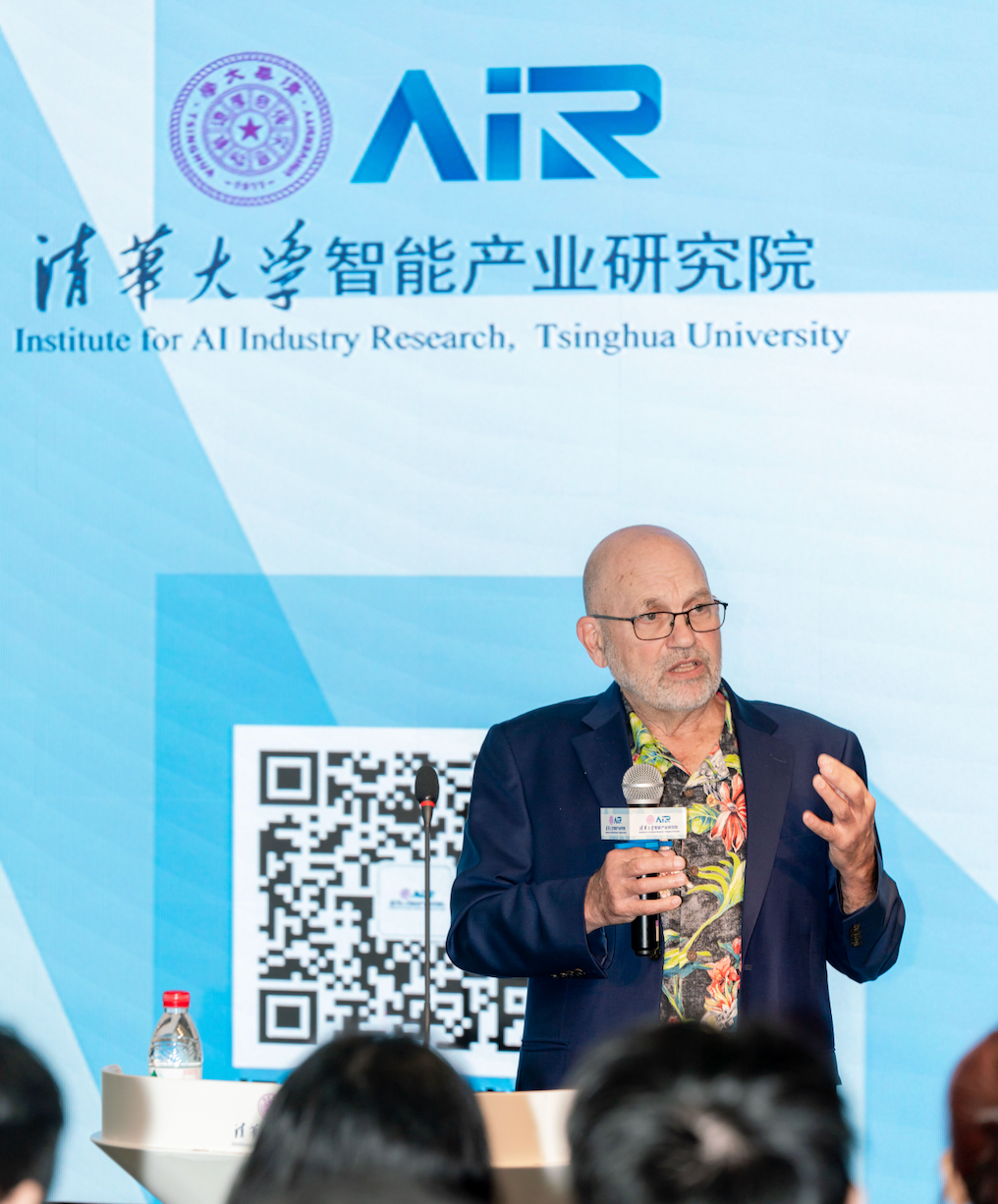On August 28, 2024, Professor Marc Raibert, founder and CEO of Boston Dynamics and a member of the National Academy of Engineering, visited the Institute for AI Industry Research (AIR) at Tsinghua University. The reception was attended by AIR Dean Professor Zhang Ya-Qin, Executive Dean Professor Liu Yang, Professor Liu Yunxin, Professor Liu Jingjing, Professor Chen Yilun, and Assistant Professor Zhan Xianyuan, who participated in the visit and exchange. Dean Zhang warmly welcomed Professor Raibert, highlighting that he is an outstanding representative in the fields of artificial intelligence and robotics, and that Boston Dynamics, under his leadership, has a profound global impact. He expressed hope for strengthened communication and collaboration in exploring cutting-edge technologies in AI and robotics.

Professor Raibert expressed his delight at visiting AIR and praised the remarkable progress made by the institute over the past three years. He expressed interest in pursuing further collaboration with AIR to advance the development of artificial intelligence and contribute wisdom and strength to global technological progress.
Following this, Professor Raibert delivered a lecture titled “Making Robots Smarter in Body and Mind” to AIR faculty and students. He began by sharing his career journey, noting that he observed how animals balance their movements without restricting their speed, which led him to believe that robots should do the same. This spurred his deep research into robotics.
Professor Raibert then introduced the four key areas of focus for his newly established AI research institute: movement intelligence, cognitive intelligence, hardware design, and ethical standards. He emphasized the cognitive intelligence project "Watch.Understand.Do," describing its goal of enabling robots to observe humans performing tasks, understand what they see, and subsequently perform intelligent operations based on that understanding.
Lastly, he discussed the prospects for humanoid robots, stating, “This is a fantastic idea!” He believes that humanoid robots are crucial for achieving our ideal vision of robotics and are a significant direction for future development. During an interactive session, Professor Raibert engaged in lively discussions with faculty and students at AIR, encouraging young scholars to boldly explore technology, work diligently, remain steadfast, and enjoy the journey. The atmosphere during the event was vibrant, and students left feeling enriched by the experience.


